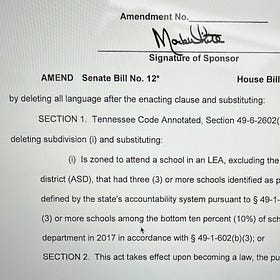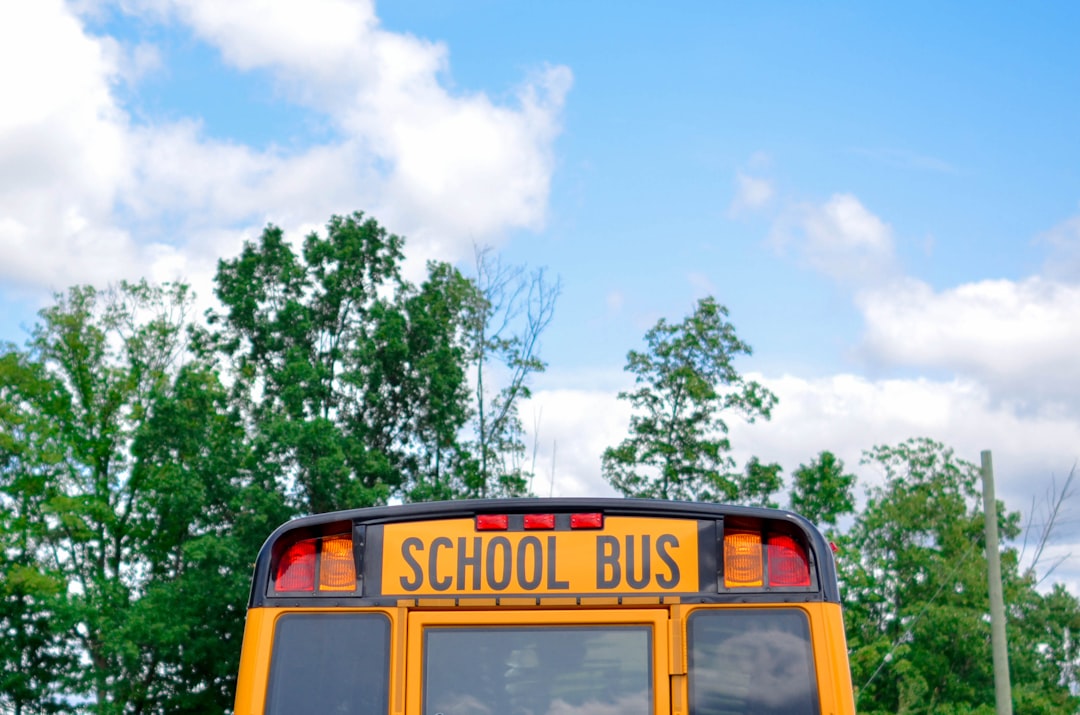The Charter Industry's Relentless Push to Privatize K-12 Education
Evidence from North Carolina and Tennessee
If you enjoy these updates and want to help support this content, please consider becoming a paid subscriber at the link below. Please also be sure to share this post with anyone you know who is a defender of public education.
Jeff Bryant reports on a North Carolina lawmaker - yes, the one who was once a Democrat and is now a Republican - and what her party switch says about the movement to privatize public education.
As Bryant notes, Democrats used to embrace some charter schools and there are still some Democrats who hold the view that charter schools hold promise or at least are not as bad as school vouchers.
Here’s more on Tricia Cotham and school privatization in North Carolina:
A deeper dive into Cotham’s voting history and her professional life in between her two tenures in the legislature reveals that Cotham found the gateway for her path to the Republican Party in the right-wing political faction promoting charter schools and school choice—a political issue that formerly captured the interests of many Democrats but now is a source of divisiveness in the party.
Indeed, her first move as a Republican, WCNC reported, was to be a primary sponsor of House Bill 618. The bill would change the current Charter Schools Advisory Board, an appointed body, from having a consultative role in approving new charters and reviewing their results to a Charter Schools Review Board that would have virtually full control over the state’s charter operations.
This may sound familiar to Tennesseans who have seen Gov. Bill Lee create a State Charter Commission with the power to impose charter schools on local districts even if the elected local school boards reject them.
In fact, legislation filed this year would have given even broader authority to the state charter commission. Though the amendment was not pushed forward this year, it should be noted it is only the first year of a two-year legislative session.
On the Agenda: Statewide School Privatization
The Education Report is nearing 2000 subscribers! Thank you! If you enjoy these updates and want to help support this content, please consider becoming a paid subscriber at the link below. Please also be sure to share this post with anyone you know who is a defender of public education.
Despite hearing from local officials resistant to privatization by charter, it seems likely the General Assembly will continue to push Gov. Bill Lee’s agenda to turn public money over to private operators to run schools.
Still, Columbia Mayor Chaz Molder is clear: Charter schools, especially those run by Hillsdale College, don’t belong:
Our local school board wisely rejected ACE in April, despite significant lobbying, if not bullying by ACE representatives and partisan board members who seem to be more interested in scoring a business or political win than solving the many pressing issues we have facing our local school system, and public education as a whole. Public education is in a crisis in this state. And, it’s not because of the quality of our teachers, or the promise of our youth.

What About Testing?
State standardized testing is supposed to help identify areas in public education that need improvement - and is often used to highlight achievement gaps based on socioeconomic status. However, a new piece in Jacobin suggests that high-stakes testing has done little to help in this regard and may, in fact, be creating more problems than it solves.
When we sort children into “proficient” and “failing” categories based on test scores, we’re not solving the opportunity gaps that show up in public education; we’re creating new ones. No one is helped, and many people are hurt, when we give students, teachers, and schools an impossible assignment and then sanction them for failing to complete it. Looking forward to the ESEA’s now overdue reauthorization, it’s high time we built accountability systems that nurture the humanity and potential of all kids — rather than placing artificial roadblocks in their way.
Tennessee’s experience with standardized testing has certainly been problematic:
A TNReady History Lesson
The Education Report is growing fast - now with more than 2000 subscribers! Thank you! If you enjoy these updates and want to help support this content, please consider becoming a paid subscriber at the link below. Please also be sure to share this post with anyone you know who is a defender of public education.
It’s difficult to say this particular iteration of the state’s testing system has done anything helpful. Still, this year, the results determined whether or not third graders would be allowed to move on to fourth grade:
New Third Grade Law Impacting Students, Families
The Education Report is growing fast - now with more than 2000 subscribers! Thank you! If you enjoy these updates and want to help support this content, please consider becoming a paid subscriber at the link below. Please also be sure to share this post with anyone you know who is a defender of public education.
Previous analysis of the state’s testing system found it to be a solid way to identify the relative concentration of poverty in a school district - but otherwise, not really useful at all.
An analysis of TCAP performance over time indicates that those school systems with consistently high levels of poverty tend to have consistently low scores on TCAP. Likewise, those systems with the least amount of poverty tend to have consistently higher scores on TCAP.
Nevertheless, Tennessee’s testing vendor, Pearson, recently received a $40 million increase in its contract.





